Market research insights for hospitality (2022)
- Last Updated : August 12, 2024
- 411 Views
- 3 Min Read
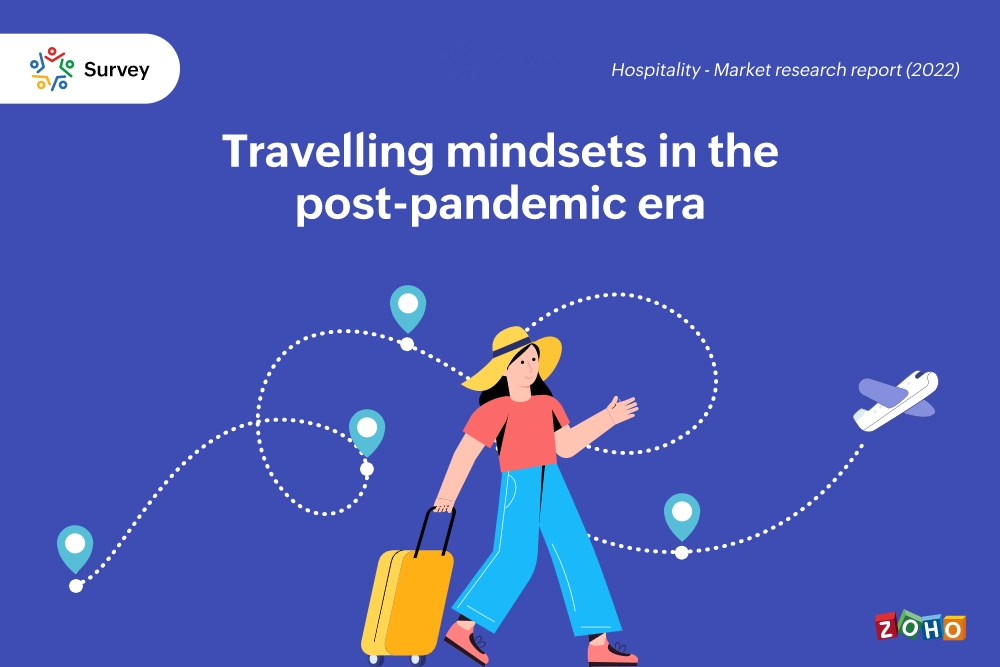
In September 2022, Zoho Survey conducted a study on hospitality across four different regions—the United States, the United Kingdom, India, and Germany—with a sample size of 600 people. What we found was highly insightful. To begin with, we measured the willingness of people to travel in the post-covid era. When it comes to hospitality, it's important to consider all aspects of a trip. This study focused on the travel, accommodation, and dining preferences of individuals/groups across different ages and employment backgrounds.
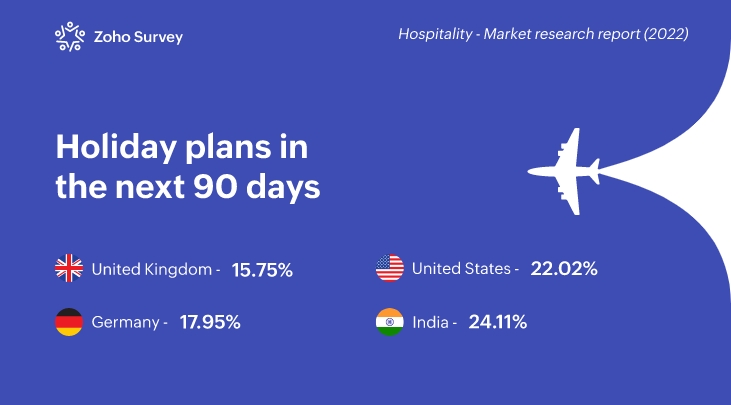
Key highlights: Post-covid sentiment (Holiday/business trip)
Finding the right accommodation is an important part of any travel plan, whether it's for business or leisure. We found that budget is a significant factor for travelers choosing a place to stay, with over 50% of respondents comparing prices before booking. A much smaller 13% of respondents are willing to "let go" of their budgets, as they are traveling for the first time post-pandemic. When choosing accommodation, 61% of millennials surveyed sought the help of online reviews.
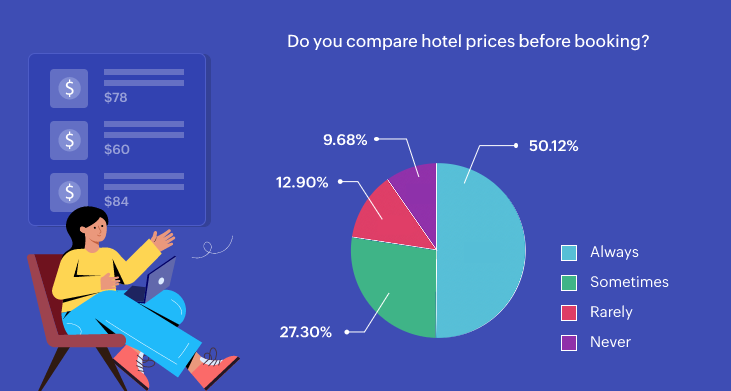
Post-covid impact: Ticketing
There has been a significant increase in using online service providers for ticketing among travel enthusiasts post-covid. Around 46% of individuals prefer to book tickets online through established websites. This may be due to the fact that travel websites have largely improved their web experience quotient. Meanwhile, the second most preferred booking method was found to be self-booking. The study showed that 34% of individuals do their own research and make arrangements without an intermediate, such as a travel website or an agency.
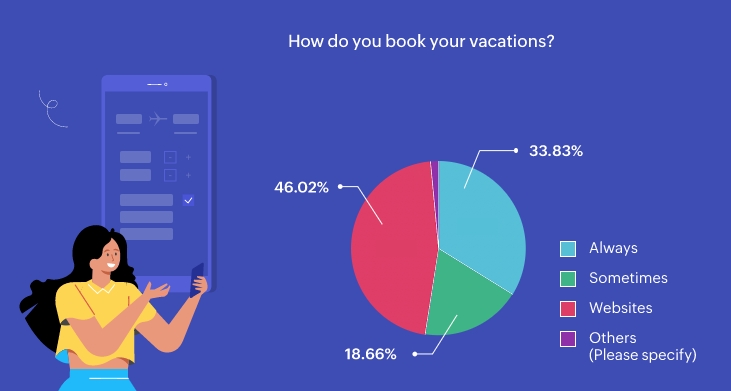
Post-covid awareness: Accommodations
To understand the awareness standards of individuals post covid, we asked them about their preferred type of accommodation. Around 32% of people prefer to book their accommodations at 3-star hotels, and 26% prefer to stay at 5-star hotels. The reasons cited for these choices include high standards of cleanliness and hygiene, as per statutory requirements, during the pandemic. Another reason cited was convenience. That being said, homestays are the third most preferred type of accommodation, with around 11% of respondents wanting to book homestays over B&Bs, lodges, or motels.
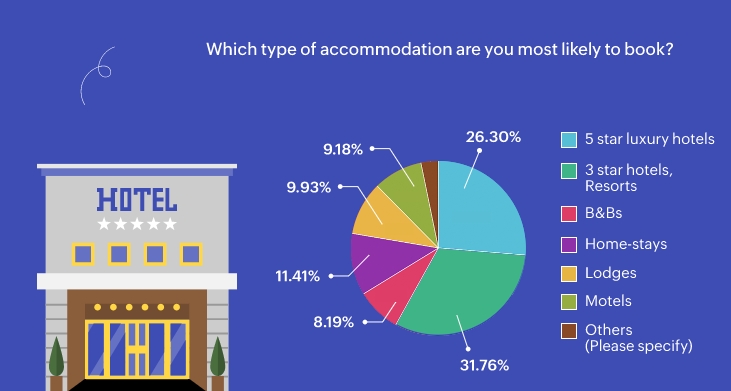
Enthusiasts soaring towards domestic travel
To help understand if there are differences in travel preferences among genders, we asked about domestic and international travel preferences. There was a clear difference in the number of both men and women preferring to travel domestically rather than internationally. 74% of men and 75% of women expressed interest in traveling to domestic locations, due to domestic travel being more budget-friendly and having fewer restrictions within the borders of a country.
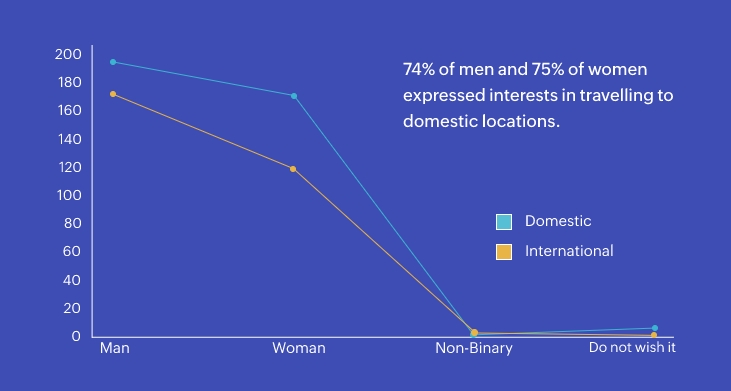
Budgeting, dinning, and more
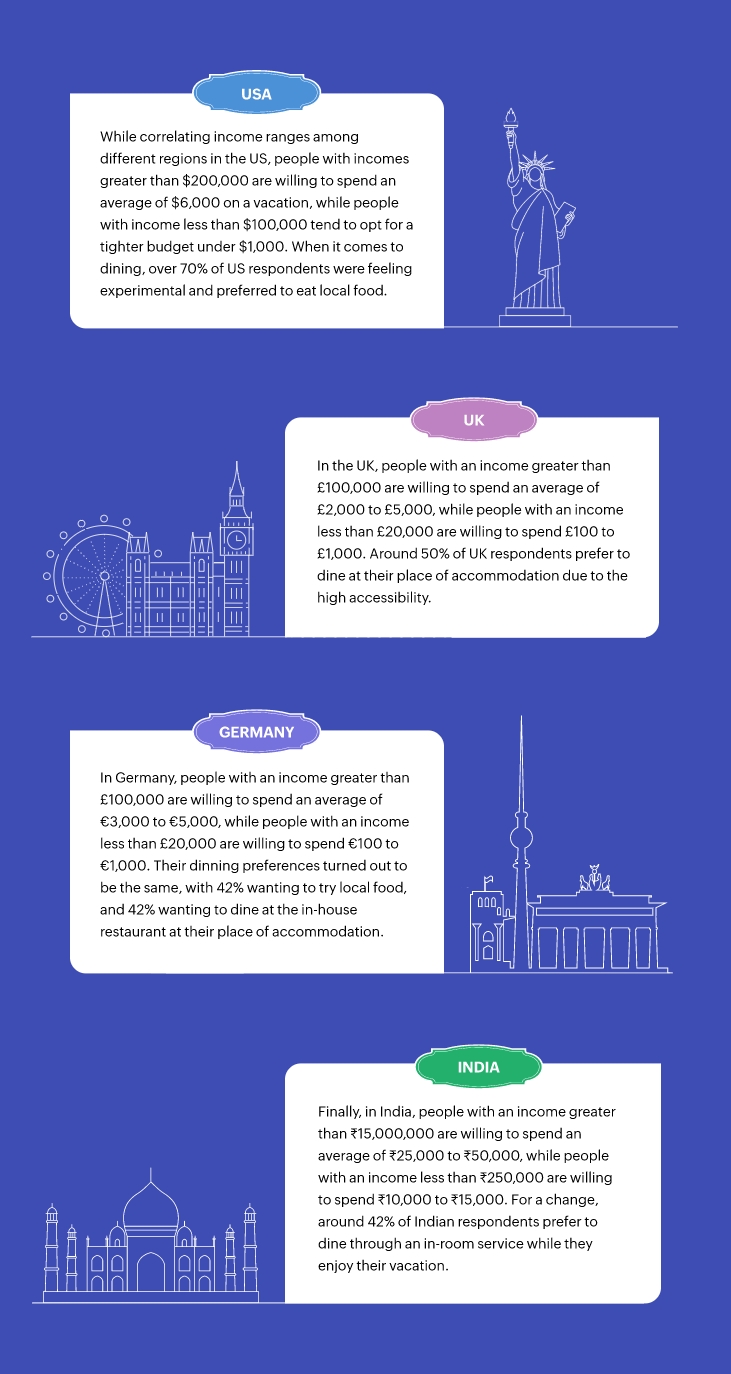
Food allergies and their impact
Allergies can be frustrating, and sometimes, dangerous. Traveling with allergies can be a hassle. So we asked people from different age groups if they are allergic to any food in general, and what we learned was quite interesting. Turns out, a significant section of people are generally free from allergies, amounting to 87% of the people in the age range 26-35.
To understand how those with allergies plan their trips and mealtimes, we asked them how they manage to eat out, and 41.5% say that allergies have not stopped them from exploring new places, though asking for nutritional information before placing an order helps.
Future travel plans
To identify if there are any travel plans during the upcoming holiday season, the respondents were asked when they plan to travel next. There seems to be a significant rise in travel plans in the next three months, with 22% of US respondents planning to travel, alongside 24% of Indian respondents. Meanwhile, respondents in Germany and the UK showed a significant interest in scheduling travel plans ahead of the winter season.
To conclude
This survey was conducted with the best interests of the hospitality industry in mind and aimed to identify the travel behaviors of people across different countries, age groups, and employment backgrounds. The purpose of the survey was to identify the paradigm shift towards online dependency, causing individuals to plan vacations independent of intermediaries. Though our sample study was relatively smaller in size, the results derived have been insightful.


